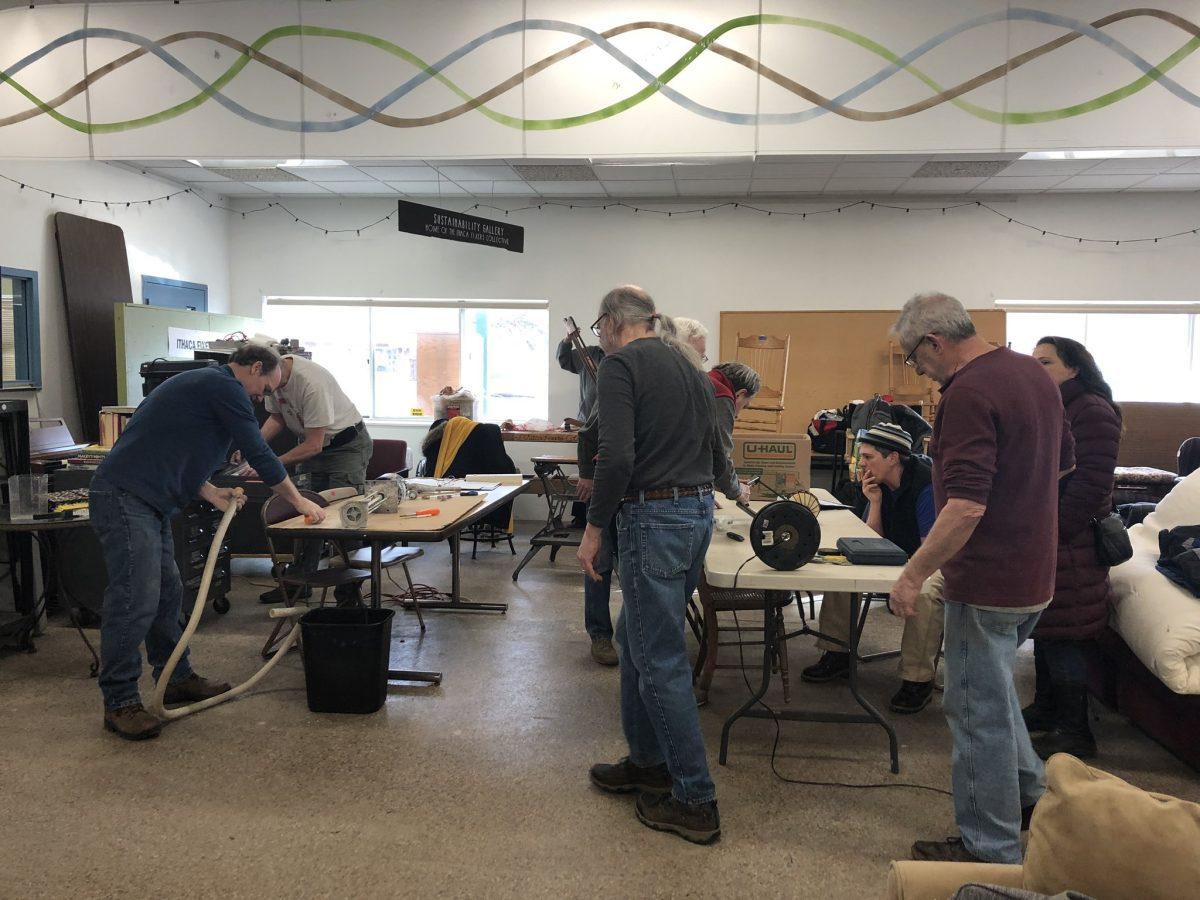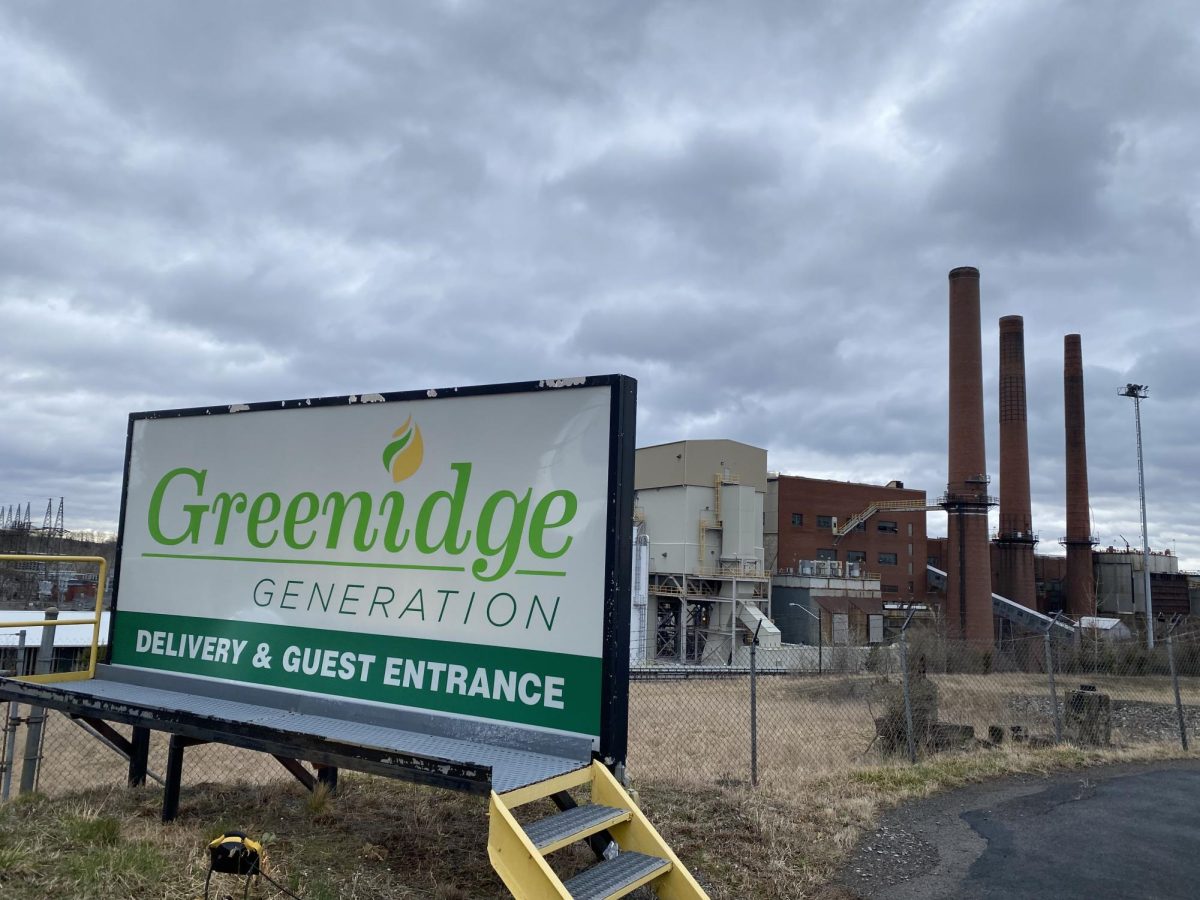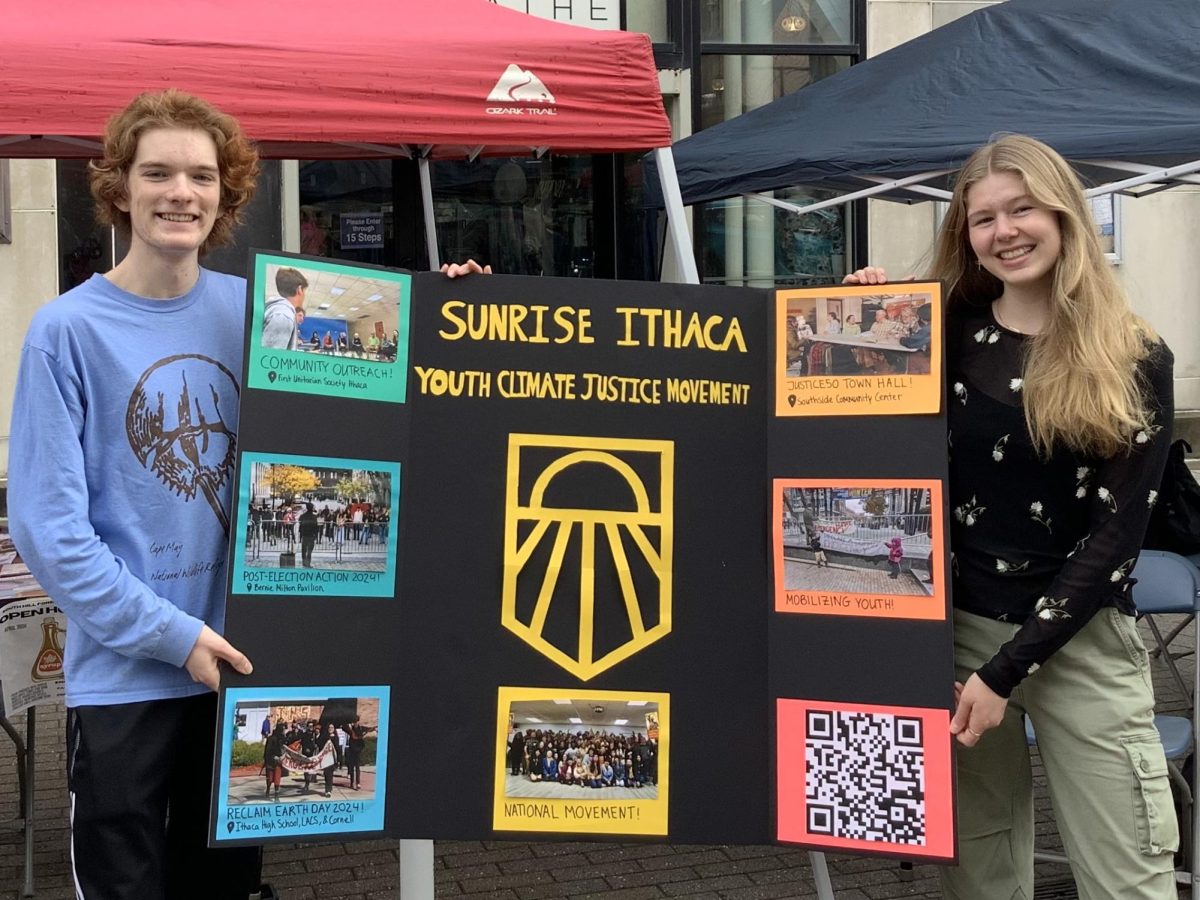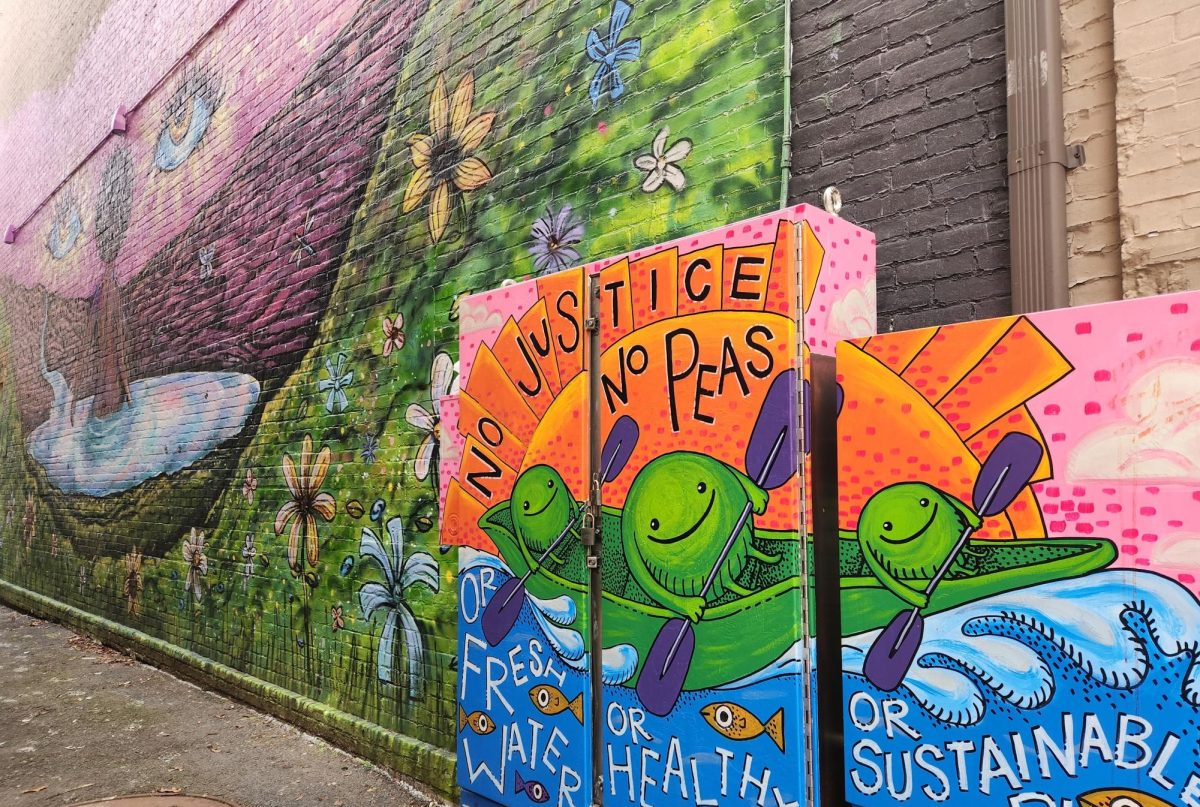Every Saturday at 3 p.m., a self-proclaimed 1970s radical, a former camerawoman and a handyman walk into the Ithaca ReUse center. They all have one thing in common. They’re a part of the Fixers Collective, a group of volunteers who come together to repair household items.
The group is comprised of community members who enjoy working with their hands or simply want to learn how to salvage broken goods. Individuals from the local area bring in their items, and volunteers do their best to fix them.
Bruce Johnson, who comes from a background of handy work, runs the workshop.
“It’s a place where people can bring in their cherished items like a lamp or a toaster or something, and get them repaired so they don’t have to throw it away,” he said.
Johnson calls the collective a “brain pool” of people who enjoy fixing things.
One of these volunteers is Roger Christian, who has been coming to the collective for three years. Christian prefers to work with wood. Other members prefer to work with technology and computers while some are jacks-of-all-trades.

The Ithaca ReUse center founded the collective in 2012 as a sustainability measure, after studying similar models of European repair cafes. Repairing goods rather than discarding and replacing them prevents new waste from being produced, and conserves the energy and raw materials that would’ve been used to manufacture a new item, according to the Environmental Protection Agency. Fixing things is an important part of a circular economy, which emphasizes reusing, repairing, remanufacturing and recycling items.
The communal work environment allows for the collective to share skills and resources they wouldn’t normally have access to, such as the well-stocked metal tool chest and the “Fixers Library”, which ironically came about after a member accidentally left some books at the center and the staff put price tags on them.
The volunteers can also bring in their own items, fix goods that have been donated to the Ithaca ReUse center or work together to repair items that people from the community bring in.
Sarah Rubenstein-Gillis had a broken lamp that she hoped the collective could repair. After sawing, drilling and rewiring the lamp, the volunteers were able to finish the two-hour session with a success story and Rubenstein-Gillis had a repaired lamp at no cost.
“I actually put the lamp in my car about three weeks ago. I was donating some stuff on the other side [of the Ithaca ReUse center] and realized it’s Saturday,” Rubenstein-Gillis said.

Among the lamp, other items fixed were an alarm clock, a wooden rocking chair, an electric system
“It seems to have found a place in the community, almost. I like the idea that we have a group of people that enjoy getting together. We have something in common,” Johnson said. “So it’s sort of an open place for a cast of characters to come and hangout.”
The collective cultivates a sense of belonging between members, with their weekly Saturday meeting being the highlight of some of the volunteers’ week.
“You’re bringing in people and their energy, and you’re finding a good match for some people out there,” Johnson said. “And that’s satisfying beyond just the toasters and the lamps.”







